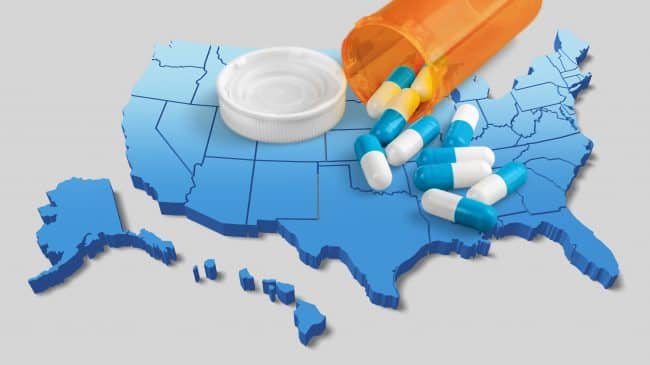News and Opinion
The cannabis black market in California is still thriving, mostly due to onerous taxes and complex regulations in the legal market.
More federal grant money is now available to train police officers to recognize drug impairment.
Florida could be on a path to legalize recreational cannabis by 2020.
With Democrats now in control of the House of Representatives, there may be a renewed push to legalize cannabis at the federal level.
The recent increase in cannabis use creates a strong need for more data and research.
While some claim that cannabis legalization has coincided with a rise in violent crime, a closer look at the data shows that claim to be untrue.
New data show that opioid and fentanyl-related overdose deaths increased markedly in 2017
Legislation, Regulation, and Markets
Rhode Island is considering legalizing cannabis after neighboring Massachusetts recently opened its market.
One opioid company is attempting to get out of the opioid business and into cannabis.
Massachusetts is considering applying a penalty to drivers who refuse roadside cannabis tests.
Pennsylvania will no longer provide the names of medical marijuana users to law enforcement agencies, effectively allowing medical card holders to buy and own guns.
There appears to be no rise in cannabis-impaired driving in Canada since legalization.
The Arizona Supreme Court will decide if edibles made from cannabis extracts will be sold in medical dispensaries.
Evidence
Pay for Success programs and better interagency collaboration could be keys to reducing the opioid crisis.
Heroin Assisted Treatment (HAT) and Supervised Consumptions Sites (SCS) could be more effective than alternative treatments.
A new study advocates harm reduction strategies, such as medication-assisted treatment, needle exchange programs, safe injection sites, heroin-assisted treatment, deregulation of naloxone, and deregulation of cannabis to address the increase in opioid overdoses.
Cannabis poses significantly fewer health risks than either tobacco or alcohol.
Some data show that youth cannabis use has not increased in Washington state after legalization.
A new analysis shows that 60 percent of cause and effect claims made on popular cannabis websites were based on low-quality evidence.

